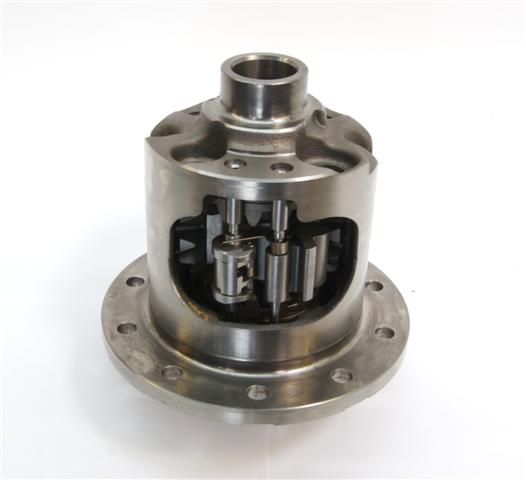During normal driving conditions, the differential operates as
conventional "open" differential. But as soon as wheel slip occurs in
either forward or reverse, the locking mechanism engages.
A flyweight governor in the differential responds to differences in
speeds. During normal driving, the governor does not influence
differential action. But whenever one wheel's speed substantially
exceeds the other's, which only occurs during wheel slip, the governor
spins rapidly causing the flyweight to open. The flyweight when catches
a latching bracket and begins lockup.

During lockup, a self energizing clutch system causes a cam plate to
ramp against a side gear. This ramping compresses the disc packs that
are inserted between the side gears and the case. The ramping increases
until both axles turn at the same speed (full lock) which prevents
further wheel slip. The entire locking procedure takes a fraction of a
second and is unnoticed by the average driver. Unlocking occurs when
both wheel regain traction.
|
